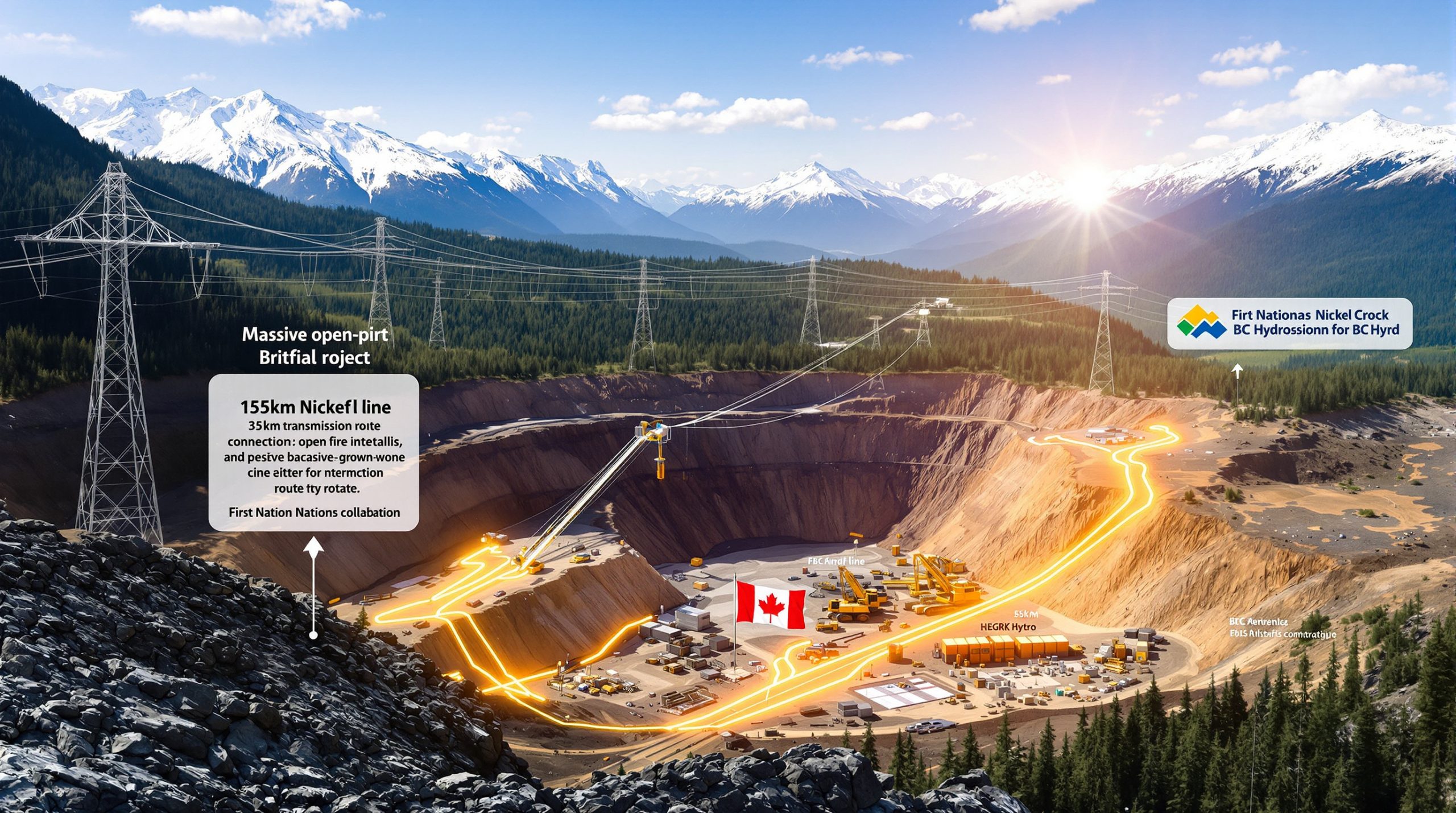Nigeria Mining Week: Unlocking Africa's Mineral Powerhouse
Nigeria Mining Week stands as the premier annual gathering for mining stakeholders invested in Nigeria's emerging mineral sector. This flagship conference and exhibition brings together government officials, industry leaders, investors, and service providers to catalyze growth in one of Africa's most promising mining jurisdictions. The event serves as a crucial platform for networking, knowledge exchange, and investment facilitation that shapes the future trajectory of Nigeria's mining industry.
Evolution and Growth of Nigeria Mining Week
The event has evolved significantly since its inception, growing from a modest industry gathering to a major international mining conference. The upcoming 10th edition, scheduled for October 13-15, 2025, at the Abuja Continental Hotel, reflects the expanding interest in Nigeria's mining potential. Organised by the Miners Association of Nigeria (MAN) in collaboration with PwC Nigeria and the Vuka Group, with official endorsement from the Ministry of Solid Minerals Development, the event now attracts over 2,000 mining professionals annually.
Strategic Importance for Nigeria's Mining Sector
Nigeria Mining Week aligns perfectly with the government's Renewed Hope Agenda, which aims to diversify the economy beyond oil and gas. According to Henry Dele Alake, Minister of Solid Minerals Development, "Nigeria Mining Week is a critical platform for unlocking the potential of the country's solid minerals sector." The event provides a structured forum where policy reforms, regulatory frameworks, and investment opportunities can be discussed and advanced. By bringing together key stakeholders, the conference accelerates the development of Nigeria's mining sector as a cornerstone of economic growth.
Why is Nigeria Emerging as a Prime Mining Destination?
Unparalleled Geological Endowment
Nigeria possesses an extraordinary geological advantage with over 44 mineral types distributed across its territory. This diverse mineral portfolio includes high-demand resources such as:
- Gold deposits across multiple states
- Lithium reserves gaining global attention
- Tin and tantalum with established mining histories
- Lead/zinc deposits with significant development potential
- Baryte reserves essential for industrial applications
This geological diversity positions Nigeria as a potential mining powerhouse capable of supplying critical minerals to global markets, particularly as the world transitions toward renewable energy and electric vehicle technologies.
Strategic Geographic Positioning
Nigeria's strategic location offers distinct advantages for mineral development and export:
- Gateway position to West and Central African markets
- Access to Atlantic shipping routes for global distribution
- Proximity to European and American markets
- Largest economy and population in Africa, creating domestic demand
- Expanding industrial base requiring mineral inputs
These geographic advantages enhance Nigeria's appeal as a mining investment destination, particularly for companies seeking to establish regional operational hubs. As Minister Alake notes, "The country's strategic position as a gateway to West and Central Africa, coupled with an emerging local market and an expanding industrial base, further enhances Nigeria's appeal."
Government-Led Reforms and Incentives
The Nigerian government has implemented comprehensive reforms to create an investor-friendly environment:
| Reform Area | Key Initiatives |
|---|---|
| Regulatory Framework | Comprehensive review of the Nigerian Minerals and Mining Act |
| Fiscal Incentives | 3-5 year tax holidays for mining operations |
| Equipment Importation | Duty-free importation of mining equipment |
| Royalty Structure | Competitive rates among the lowest in the region |
| License Administration | Transparent processes through the Mining Cadastral Office |
| Profit Repatriation | Guaranteed frameworks for international investors |
These reforms demonstrate Nigeria's commitment to creating a stable, transparent, and profitable environment for mining industry trends, addressing historical concerns about regulatory uncertainty. According to Minister Alake, "The Nigerian Minerals and Mining Act is undergoing a comprehensive review to streamline administrative processes and ensure that it meets modern global standards."
How is Nigeria Mining Week Driving Sector Development?
Platform for Policy Dialogue and Reform
The conference provides a crucial forum where government officials can engage directly with industry stakeholders to refine policies and address regulatory challenges. Recent editions have featured high-level participation from the Ministry of Solid Minerals Development, including Minister Alake, who has used the platform to communicate Nigeria's vision for the sector and announce key policy initiatives.
Investment Facilitation and Deal-Making
Nigeria Mining Week serves as a catalyst for investment by:
- Connecting international investors with local project opportunities
- Showcasing Nigeria's mineral potential through exhibitions
- Facilitating joint ventures between foreign and domestic companies
- Providing a platform for financing discussions with banks and funds
- Enabling business-to-government engagement on investment barriers
The event has directly contributed to increased interest in junior mining investments, with several major deals announced during or following previous editions. Minister Alake confirms that "Nigeria Mining Week provides a stage for government officials, industry leaders, and financial institutions to discuss policy, innovation, and strategies to improve the ease of doing business in Nigeria."
Knowledge Transfer and Capacity Building
A core function of Nigeria Mining Week is knowledge dissemination and skills development:
- Technical workshops on modern mining techniques
- Panel discussions featuring international best practices
- Presentations on environmental and social governance standards
- Exhibitions showcasing innovative mining technologies
- Networking opportunities for professional development
These knowledge-sharing components help build local capacity and expertise, addressing one of the key challenges facing Nigeria's mining sector development. The Minister emphasizes that "It is also an excellent opportunity for showcasing Nigeria's geological potential and highlighting key investment opportunities."
What Strategic Minerals is Nigeria Prioritizing?
Critical Minerals for the Global Energy Transition
Nigeria is strategically focusing on minerals essential to the global energy transition:
- Lithium: Critical component for battery technology and energy storage systems
- Rare Earth Elements: Essential for renewable energy technologies and electronics
- Cobalt and Nickel: Key materials for electric vehicle batteries
- Graphite: Used in battery anodes and various high-tech applications
By developing these resources, Nigeria aims to position itself as a key supplier in the global green economy supply chain, capitalizing on growing demand for energy transition minerals. Minister Alake explains that "As the world transitions towards renewable energy and electric vehicles, Nigeria is positioning itself as a key supplier of critical minerals."
Traditional High-Value Minerals
Alongside critical minerals, Nigeria continues to develop its traditional mineral resources:
- Gold: Found across several states with both large-scale and artisanal operations
- Lead/Zinc: Substantial deposits with established mining operations
- Tin and Tantalum: Historical mining regions with renewed development potential
- Baryte: Strategic mineral with applications in oil drilling and industrial processes
These minerals provide immediate revenue potential while the country develops its critical minerals capacity, creating a balanced approach to sector development. Many investors are exploring gold investment strategies as the Minister notes that "Lithium is a vital component in battery technology, while gold remains a cornerstone for financial security and industrial applications."
Value Addition and Beneficiation Focus
A key theme at Nigeria Mining Week is the emphasis on domestic value addition:
- Processing facilities to upgrade mineral concentrates
- Manufacturing opportunities using locally-sourced minerals
- Technology transfer for downstream processing
- Job creation through the mineral value chain
- Export revenue enhancement through processed products
This focus on mineral beneficiation insights aims to maximize the economic impact of Nigeria's mineral resources beyond simple extraction and export of raw materials. According to Minister Alake, "We aim to create value through local beneficiation, which will enhance job creation, technological transfer, and foreign exchange earnings, positioning Nigeria as a leader in Africa's green economy."
How is Nigeria Addressing Mining Sector Challenges?
Formalization of Artisanal and Small-Scale Mining
Artisanal and small-scale miners (ASMs) account for over 90% of Nigeria's current mineral production. The government is implementing a comprehensive strategy to integrate these operators into the formal economy:
- Cooperative models allowing miners to pool resources
- Access to financing through low-interest loans
- Technical training and modern equipment provision
- Establishment of mineral buying centers across mining regions
- Environmental protection and rehabilitation training
These initiatives, frequently discussed at Nigeria Mining Week, aim to transform artisanal mining into a sustainable, profitable, and environmentally responsible sector. Minister Alake confirms that "Our goal is to formalise and integrate them into the mainstream economy by providing access to finance, modern tools, and technical know-how."
Infrastructure Development for Mining Growth
Infrastructure limitations have historically constrained Nigeria's mining development. The government is addressing these challenges through:
- Road network improvements in mining regions
- Power supply enhancements for processing operations
- Water management systems for sustainable operations
- Rail connectivity for mineral transportation
- Port facilities upgrades for mineral exports
These infrastructure investments are critical enablers for large-scale mining development and feature prominently in discussions at Nigeria Mining Week. The government's initiatives include establishing mineral buying centers across the country, providing ASMs with structured markets to sell their produce at competitive prices.
Environmental and Social Governance Standards
Sustainable mining practices are increasingly emphasized at Nigeria Mining Week:
- Community Development Agreements (CDAs) as mandatory requirements
- Environmental impact assessment and management protocols
- Rehabilitation and closure planning for mining operations
- Social license to operate through community engagement
- Transparency initiatives in revenue management
These standards ensure that Nigeria's mining development delivers long-term benefits while minimizing negative impacts on communities and the environment. The Minister stresses that such initiatives aim to "elevate artisanal mining into a sustainable and profitable venture while ensuring the protection of the environment."
What Skills Development Initiatives Support Nigeria's Mining Vision?
Comprehensive Training Programs
The Ministry of Solid Minerals Development has implemented wide-ranging skills development initiatives:
- Technical training for artisanal miners on modern techniques
- Professional development for geologists and mining engineers
- Management training for mining administrators
- Environmental management certification programs
- Health and safety training for mining operations
These programs, highlighted at Nigeria Mining Week, address critical skills gaps in the sector and build local capacity for sustainable industry growth. Minister Alake emphasizes that "We recognise that a skilled workforce is the backbone of any successful mining sector, so we have invested heavily in capacity-building initiatives."
International Partnerships for Knowledge Transfer
Nigeria has established strategic partnerships to accelerate skills development:
- Collaboration with the Chinese government on technical training
- Australian government partnerships on mining governance
- World Bank support for sector modernization
- African Development Bank funding for skills programs
- Industry partnerships with major mining companies
These international collaborations, often formalized during Nigeria Mining Week, provide access to global best practices and accelerate local capacity building. The Minister notes that "Through partnerships with institutions like the Nigerian Institute of Mining and Geosciences (NIMG) and international organisations, like the Chinese and Australian governments, we provide technical and vocational training that equips our workforce with modern mining techniques."
Academic Institution Engagement
The government is working closely with educational institutions to build a skilled mining workforce:
- Curriculum updates at the Nigerian Institute of Mining and Geosciences
- University partnerships for mining engineering programs
- Technical vocational training centers in mining regions
- Research collaboration on mineral processing technologies
- Scholarship programs for mining-related disciplines
These academic initiatives ensure a sustainable pipeline of skilled professionals to support the sector's long-term development. According to Minister Alake, "We are collaborating with universities to update mining curricula, ensuring that our graduates are proficient not only in theoretical knowledge but also in the latest mining technology advances."
What is the Future Vision for Nigeria's Mining Sector?
Economic Diversification Cornerstone
Nigeria's mining sector is positioned to become a major pillar of economic diversification:
- Significant contribution to GDP beyond oil and gas
- Foreign exchange earnings from mineral exports
- Tax revenue generation from formal mining operations
- Employment creation across the mineral value chain
- Regional development in mining communities
This economic diversification vision forms the core rationale for Nigeria Mining Week and drives government policy in the sector. Minister Alake articulates this vision clearly: "My vision is for Nigeria's mining sector to serve as a major pillar of economic growth, driving industrialisation, employment, and social development."
Globally Competitive and Sustainable Industry
The long-term vision for Nigeria's mining sector encompasses:
- World-class operations meeting international standards
- Environmentally sustainable mining practices
- Socially responsible engagement with communities
- Value addition through domestic processing
- Integration into global mineral supply chains
Nigeria Mining Week serves as a platform to advance this vision through knowledge sharing, investment facilitation, and policy dialogue. The Minister states that "We aim to build a globally competitive, innovative, and sustainable sector that attracts significant foreign direct investment while ensuring maximum value is retained in the local economy."
Innovation and Technology Adoption
Future development of Nigeria's mining sector will increasingly leverage technology:
- Digital solutions for geological mapping and exploration
- Automated mining systems for efficiency and safety
- Blockchain applications for mineral traceability
- Remote monitoring technologies for environmental management
- Advanced processing technologies for value addition
These technological innovations feature prominently in exhibitions and discussions at Nigeria Mining Week, highlighting the sector's modernization trajectory. According to Minister Alake, "Our focus on beneficiation and value addition, strengthening the regulatory framework, and fostering an investor-friendly environment envisions a mining sector that contributes substantially to the nation's GDP, enhances our export revenues, and supports the transition to a green economy."
Conclusion: Nigeria Mining Week as a Catalyst for Transformation
Nigeria Mining Week has established itself as the definitive platform for advancing Nigeria's mining sector ambitions. By bringing together government officials, industry leaders, investors, and service providers, the event catalyzes policy reforms, investment decisions, and knowledge transfer that are transforming Nigeria's mining landscape.
The upcoming 10th edition in October 2025 will mark a decade of progress in developing Nigeria's mineral potential. As the country continues to implement its vision of a diversified, sustainable, and globally competitive mining sector, Nigeria Mining Week remains the essential annual gathering for stakeholders committed to unlocking Africa's newest mineral powerhouse.
Minister Alake summarizes the ultimate goal: "Our ultimate goal is to build a mining sector that is not only profitable but also inclusive, equitable, and environmentally sustainable, ensuring prosperity for present and future generations."
Disclaimer: This article contains forward-looking statements regarding Nigeria's mining sector development. Actual outcomes may vary based on market conditions, regulatory changes, and other factors beyond current forecasts. Readers should conduct their own due diligence before making investment decisions.
Want to Be Alerted to the Next Major Mineral Discovery?
Discovery Alert's proprietary Discovery IQ model provides instant notifications on significant ASX mineral discoveries, helping investors identify actionable opportunities before the broader market. Learn why historic discoveries can generate substantial returns by visiting the dedicated discoveries page.




